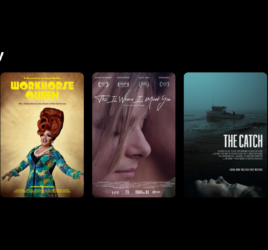
The Ones You Can’t Stop Thinking About
I, like most film nerds, really love those stories you just can’t stop thinking about after having seen them. For me, two of those this year were Messania’s Story (a documentary short) and Road to Vrindavan (a documentary feature).
When I first watched Messania’s Story, I went into it entirely blind, meaning I chose not to read the information or spoilers provided. It was one I watched early on in our screening process (a process that takes many months), and I have not stopped thinking about it, even to this day.
The story focuses on an elderly Kenyan woman named Messania as she tells her story of growing up. When she was young, a girl’s worth was tied to who she married. And who she married was determined by her female circumcision (“the cut”). It’s what they all knew, it’s what they all believed, it’s what they all supported and performed for many, many years. Messania tells her life story and how “the cut” changed it. Really, the rest is too good for me to give away right here (but you can find more info by clicking around on our film listings and schedule), but I’ll end my praise with this… The shots are perfect, the story is moving and empowering, and the re-enactments are anything but cheesy (which is something I often fear in documentaries).
If Messania’s Story wasn’t enough for you, I’ve gotta recommend a documentary feature called Road to Vrindavan. This one made such an impact on me that I fought pretty hard for it to be in the festival. (The fight for it might not have been necessary, but I was impassioned!)
Road to Vrindavan is one of those documentaries that sets out to be about one thing but then changes course midway through as it’s being filmed. (Personally, I love that in documentaries, so that really worked for me.) The filmmaker is a former monk who returns to Vrindavan (where he spent a lot of time as a monk) to examine gender roles. He believes that women in India deserve education and opportunities to succeed, and he conducts many interviews with local villagers about the topic. But, things change when he’s essentially asked why HE, a man, is making the documentary. Is it his story to tell? (Very fair point, let’s be honest.) It’s at this point that he starts to examine more closely what needs to change on the side of men in order for these women in India to succeed and thrive. We get a lot of stories similar to this one, but it’s when he starts to examine what needs to happen from men that makes this documentary stand out as one I found worth fighting for and that I think about often.
Obviously, it’s my strong suggestion that you watch these two films, but my real hope is that you also find some films in this year’s Indy Film Fest that you can’t stop thinking about! (And if or when you find those, reach out to us on social media about them!)


